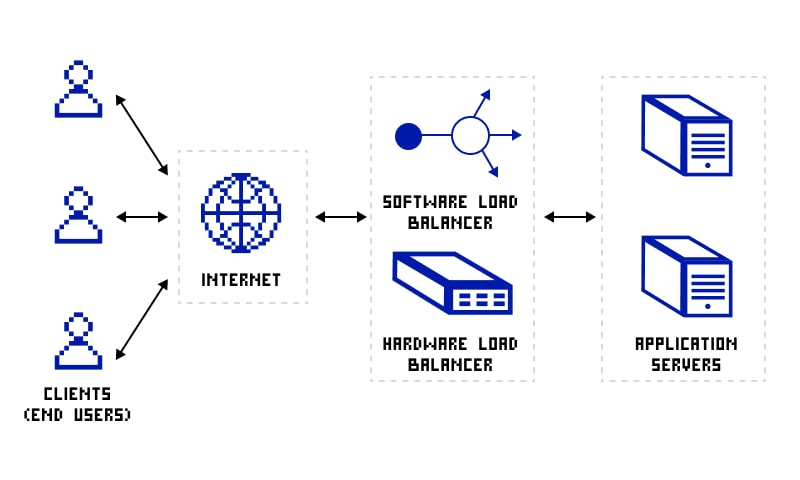Everyone gets frustrated with slow websites or pages, right? Getting to the content you want is frustrating and time-consuming. So you do your usual Google search and find out that most people have the same problem, except they don’t know the solution…
It doesn’t matter where you are in your website or app development journey; sooner or later you will run into a situation where you need to take a step back and reevaluate what you are trying to achieve. It could be that your site didn’t work as expected when it was first built, or perhaps there is another option that could help you achieve your goals faster. Regardless of why it is that you need to look for alternatives, this blog will give you a clear perspective on what else is available in the market.
What is an Alternative to Cloudflare?
Cloudflare is an authoritative CDN and DDoS protection service, which serves as the foundation for many websites and apps. Cloudflare has a wide range of features, including content delivery network (CDN) acceleration, DNS optimization, HTTPS management, website stress testing, and threat intelligence.
The alternative to Cloudflare would be any one of these other CDNs listed on Wikipedia: Akamai Technologies Inc., Amazon Web Services Inc., BitGravity Inc., CacheFly Inc., Fastly Inc., Level 3 Communications Inc., Limelight Networks LLC, Microsoft Corporation at its Azure platform, Packet Clearing House LLC, peering-only networks like RIPE NCC or NTT Communications Corporation of Japan.
SSL/TLS Certificate
One solution is to purchase an SSL/TLS certificate. These certificates encrypt your connection and confirm that you are really who you say you are. They are a great way to ensure that your website or app is secure from cyber attacks and data theft.
Another option is Cloudflare, which can be used as a content delivery network (CDN) for websites and apps to help them load faster. It helps with caching and compression of traffic, which speeds up the loading time for sites and apps. Cloudflare also includes DNS protection (against DNS spoofing) and DNS failover, so if your site goes down due to the power going out, cloudflare will automatically redirect traffic away from the old domain to avoid any inadvertent clicks on phishing links in the meantime.

Load Balancer
One of the most popular choices for a load balancer is Cloudflare. It has a lot of features that make it a good choice, but it’s not the only option available. There are other companies that offer similar products, and they have different features that could make them better suited to your needs.
DNS Provider
One option to consider is a DNS provider. A DNS provider gives you the ability to get out of your own hair and manage your own server infrastructure. This can be helpful when you need a little extra help with an app or website that doesn’t have the server infrastructure of a large company behind it.
VPS or Dedicated Server
The first option that comes to mind is a VPS, or Virtual Private Server.
Cloudflare is a good example of a company that uses this type of hosting for their website. A virtual private server is an alternative to using a shared hosting plan. It provides you with your own dedicated server space, which means you have more control over what software runs on it and the speed at which it runs. For small businesses, the benefits of this type of hosting are clear: you maintain more control over your site’s performance and security and you can upgrade as needed without having to raise all kinds of red flags with your host company. But this option has its drawbacks as well: if your site relies on something like WordPress, a VPS might not be able to handle the amount of traffic that it gets because it is not built for high-traffic websites.
NoSQL Database
NoSQL databases are a good option for businesses that want to be able to scale quickly, as they offer more flexibility to your website. This is because NoSQL databases don’t use tables and columns like relational database management systems (RDBMS) do. Instead, they store data in key-value pairs. This allows developers greater control over how the data is stored on their site, allowing them to change the structure of the database with minimal effort. Because of this, you could potentially change your database schema at any time without affecting other parts of your website or app.
Analytics Platform
There are a few different types of analytics platforms that you’ll find in the market. The first is web analytics, which can help you determine how your website or app is performing by tracking specific metrics. You can track things like conversion rates, bounce rates, and average visit duration. Another option would be enterprise software, which offers more comprehensive information about your business’s performance and performance across all departments. This includes real-time dashboards with data on your top-level KPIs (Key Performance Indicators), trend reports based on historical data, and more.
It’s important to remember that these tools are not created equal. Some have better features than others, but they all allow you to achieve the same outcomes with varying levels of complexity and cost. Therefore, it is up to you to evaluate what your goals are, what features are needed for those goals, and what price point works best for your budget as you move forward with evaluating these options.
Conclusion
Cloudflare is a great service, but it’s not the only option out there. Other services in the market offer similar functionality without the monthly fees. Most importantly, you should take into consideration the alternatives’ performance and reliability when picking your service. You can try API protection or Cloud WAF from another vendor